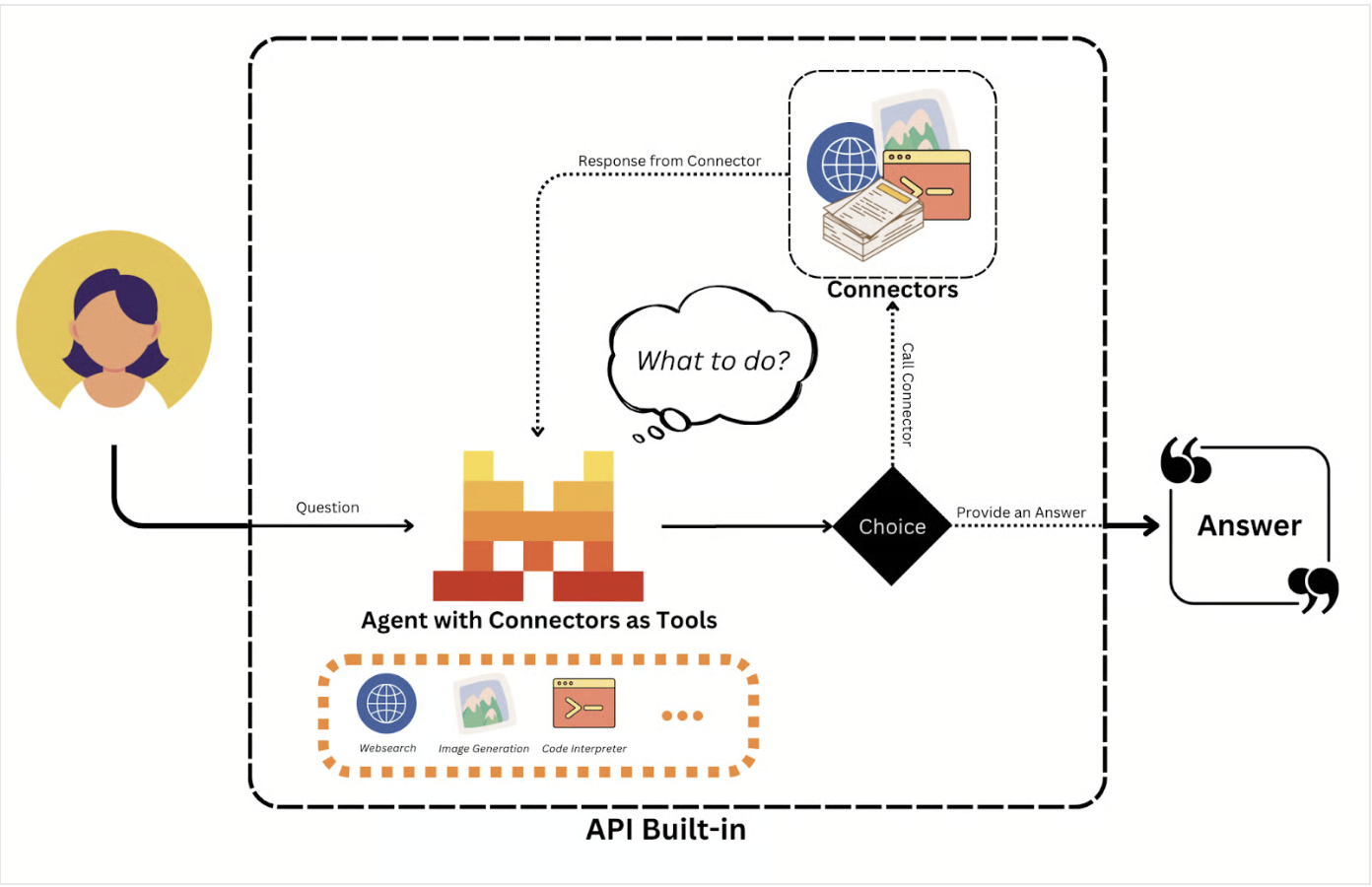Read the full article on DataCamp: Mistral Agents API – A Guide With Demo Project
Learn how to build intelligent assistants using Mistral’s Agents API and explore agent creation, tool usage, memory retention, and orchestration. A hands-on Nutrition Coach demo ties it all together.
Overview
The Mistral Agents API introduces an agentic layer over large language models (LLMs), enabling multi-step tasks, web access, tool usage, and persistent memory across conversations. This tutorial walks through building a multi-agent AI Nutrition Coach that:
- Estimates calories using web search
- Logs meals with timestamp
- Suggests the next healthy meal
- Generates a food image
- Offers a Gradio frontend for interaction
What Is Mistral’s Agents API?
Unlike simple LLM chat APIs, the Agents API allows:
- Tool use like web search, image generation, and custom APIs
- Conversation memory to track long-term context
- Agent handoffs and multi-agent orchestration
Agents consist of:
- Instructions (e.g., “You are a meal-logging coach”)
- Tools (e.g.,
web_search,log_meal) - Memory (conversation history and tool responses)
Core Concepts Explained
- Connectors: Built-in tools like
web_search,image_generation - MCP Tools: Custom developer tools exposed as APIs
- Entries & Handoffs: Structured message/tool logs and agent delegations
- Supported Models:
mistral-medium-latest,mistral-large-latest

Project Overview: Nutrition Coach With Mistral Agents
The app receives a user’s meal and responds with:
- Calorie estimate via web search
- Meal log with timestamp
- Next meal suggestion
- Image generation of that meal
Users interact with this system through a friendly Gradio UI.
Step 1: Prerequisites
Install dependencies:
pip install -r requirements.txt
Dependencies:
mistralai==0.0.7gradio==4.34.0python-dotenv==1.1.0
Create a .env file:
MISTRAL_API_KEY=your_key_here
Step 2: Setting Up Mistral Tools
Tool registration and configuration
Define schemas, instantiate the Mistral client, and load environment variables in configs.py.
Calorie search agent
web_search.py uses Mistral’s web_search connector to estimate calories from meal descriptions.
Prompt-based fallback tools
In next.py:
estimate_calories()→ fallback calorie estimatelog_meal()→ logs user mealssuggest_next_meal()→ suggests healthy alternatives
Image generation
image_gen.py uses the image_generation connector to render a realistic visual of the suggested meal.
Step 3: Full Nutritionist Pipeline
All tools come together in agent.py to:
- Search or estimate calories
- Log the meal
- Suggest a next meal
- Generate an image
{
"logged": "Meal logged...",
"next_meal_suggestion": "...",
"meal_image": "generated_images/meal_x.png",
"tools_used": [...]
}
Step 4: Creating a User Interface With Gradio
app.py connects the backend pipeline with a sleek Gradio interface. The UI allows users to:
- Enter a username
- Describe their meal
- Choose a dietary preference
- View calorie estimate, meal log, next meal suggestion, and image
python app.py
Folder Structure
Mistral_Agent_API/
├── tools/
│ ├── configs.py
│ ├── web_search.py
│ ├── next.py
│ ├── image_gen.py
├── agent.py
├── app.py
├── .env
├── requirements.txt
├── generated_images/
Conclusion
You now have a working Nutritionist AI assistant powered by Mistral’s Agents API. This agent demonstrates:
- Multi-agent orchestration
- Tool usage (connectors + chat completions)
- Persistent memory
- Image generation
- Real-world usability with Gradio
Explore agent-based systems with similar tutorials:
- OpenAI Codex: 3 Practical Examples
- Google Jules: 3 Practical Examples
- Perplexity Labs: 5 Hands-on Demos
- n8n with LLMs
- Dify AI Demo
Learn more by reading the full article on DataCamp:
https://www.datacamp.com/tutorial/mistral-agents-api


Comments